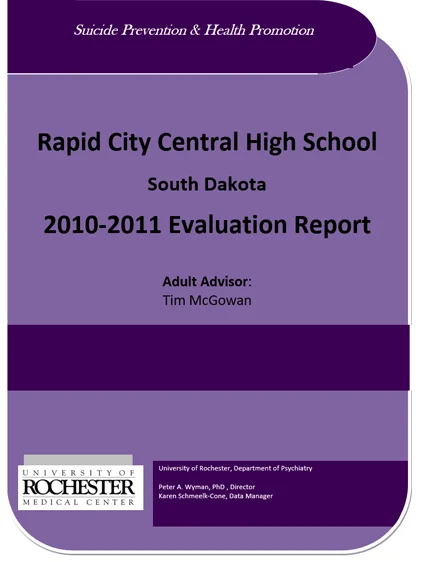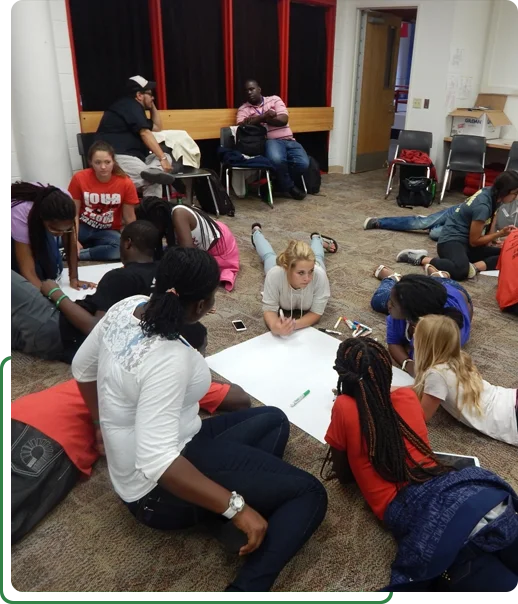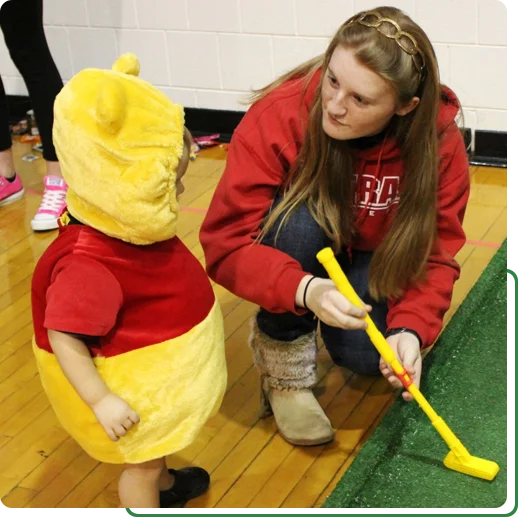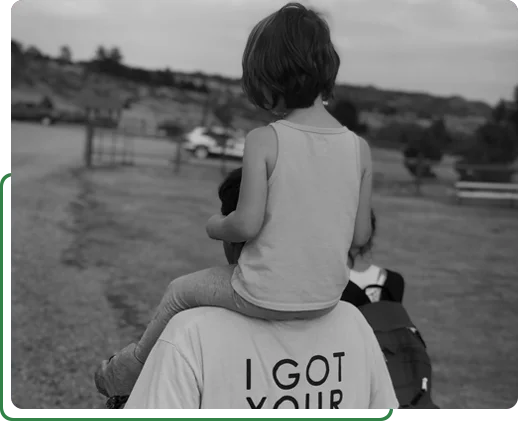
Executive Summary: Peer Mentor training and Peer Mentoring in Rapid City Central High School are associated with positive benefits for students’ well-being and school bonding. Student mentors who also received training were compared with mentors who did not receive training. Students with training reported more positive norms for coping with distress and with suicide, showed higher levels of social connectedness, and were more likely to report recognizing suicidal behaviors in peers than mentors who did not receive mentoring and training.
Second, 9th grade students who were mentored reported greater connectedness to their school and lower maladaptive coping attitudes compared to 9th graders who were not mentored.
Peer mentoring was expected to increase school engagement and possibly reduce maladaptive coping norms.
*Importantly, 9th grade students who received mentoring reported a high level of engagement at school and were less likely than non-mentored students to endorse use of negative coping strategies such as use of drugs to solve problems.
* = significant difference
No differences were found between Mentor groups on knowing an adult they trust to talk to if need help, or having talked to an adult they trust about a problem in the past three months.
Mentors did not differ on having told a friend with emotional or behavioral problems to get help or having told a suicidal friend to get help from an adult.
*But those with training were more likely to have thought another teen’s behavior might indicate he/she was considering suicide.




(1) norms for coping with distress and with suicide, and (2) indicators of social ‘connectedness’ (i.e., social integration and perceived support) spanning positive interactions with peers, use of ‘sources of strength’ protective resources, and number of ‘trusted adults’ nominated by youth.
All of the scales showed satisfactory psychometric properties in the national study of Peer Mentors (Wyman et al., 2010). Other measures that could be expected to show group differences are detailed below in (3).





